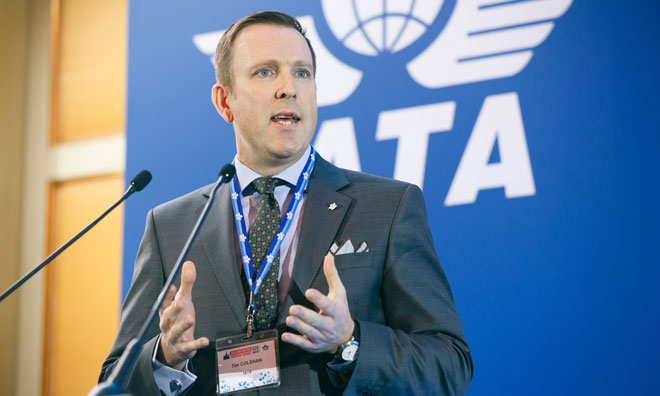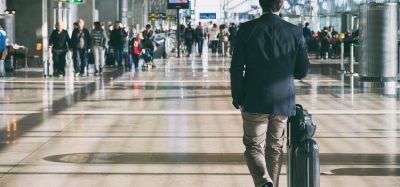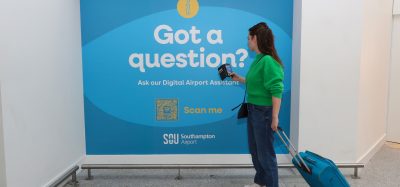Last orders for drinking at airports?
- Like
- Digg
- Del
- Tumblr
- VKontakte
- Buffer
- Love This
- Odnoklassniki
- Meneame
- Blogger
- Amazon
- Yahoo Mail
- Gmail
- AOL
- Newsvine
- HackerNews
- Evernote
- MySpace
- Mail.ru
- Viadeo
- Line
- Comments
- Yummly
- SMS
- Viber
- Telegram
- Subscribe
- Skype
- Facebook Messenger
- Kakao
- LiveJournal
- Yammer
- Edgar
- Fintel
- Mix
- Instapaper
- Copy Link
Posted: 8 September 2016 | Tim Colehan, Assistant Director, Member and External Relations, IATA | 2 comments
Tim Colehan Assistant Director, Member and External Relations for IATA provides IAR with an exclusive analysis of the current polemic regarding the sale and consumption of alcohol in airports…


Brexit, and a new female Prime Minister, were not the only new stories to capture the imagination of the UK press this summer. Comments made by Lord Ahmad, the incoming Aviation Minister, that the government would re-examine the manner in which alcohol is sold at airports, as part of wider efforts to tackle unruly and disruptive behaviour onboard aircraft, led to a raft of sensational news headlines predicting crackdowns and alcohol bans at airports.
So is alcohol fuelling the problem of unruly passengers? Would the international airline industry favour significant restrictions on alcohol sales at airports?
Disruptive incidents, committed by a tiny minority of passengers onboard aircraft in flight, have become a significant issue for airlines. Incidents can affect flight safety, causing distress to other travellers and crew, and result in costly delays and diversions. IATA has been collecting global statistics collected from reports from airlines since 2007. In 2015 there were 10,854 reports which equates to one unruly passenger incident per 1,205 flights. This is an increase from 2014, where there was 1 incident for every 1,289 flights. It should be noted that these figures are likely to under-represent the issue because not all airlines report data and not all airlines are members of IATA. But these statistics, combined with data from individual civil aviation authorities (including the UK CAA) and anecdotal evidence from airlines, seem to point to a problem that is getting worse.
The industry takes the issue very seriously. In 2014, IATA’s member airlines unanimously endorsed a set of core principles on unruly passengers calling on governments to ratify the Montreal Protocol 2014 so they have the legal powers at their disposal to ensure unruly passengers face the appropriate consequences of their actions. Other balanced measures called for include the need for airlines, airports and others to work together locally to implement the right policies and procedures, and train staff to avoid issues and respond effectively to incidents. It also calls for initiatives to educate passengers on what constitutes unacceptable behaviour onboard and the possible consequences.
Disruptive incidents occur for a variety of reasons, but is excessive alcohol consumption fuelling this rise?
We know that intoxication (either through alcohol or drugs) seems to be a trigger for unruly passenger behaviour. But the reality is that less than one quarter of the incidents reported to IATA cited intoxication by alcohol and other psychoactive substances as a trigger. This is consistent with analysis of Canadian unruly passenger incidents between 2000 and 2013. Frustration with the flight, such as issues with neighbouring passenger(s), lack of meal choice, IFE or seat, mental health problems, job or relationship issues and being unable to smoke are thought to be some other triggers. It is also important to remember that the majority of unruly passenger incidents take the form of verbal abuse of cabin crew, and refusal to obey commands. This stems from a lack of respect for flight attendants and the important safety role they perform, and is a factor in both alcohol and non-alcohol related incidents.
In 2015 there were 10,854 reports which equates to one unruly passenger incident per 1,205 flights. This is an increase from 2014, where there was 1 incident for every 1,289 flights.
While acknowledging that alcohol is not the sole issue for unruly behaviour, it is clearly a significant factor in a large number of incidents. But it should also be noted that in most cases intoxication results from consumption before the flight or from the passengers’ own supply without knowledge of the crew.
So it is essential that airlines, airports, and local enforcement authorities work closely together to prevent problems developing before passengers board the flight. We’ve seen some excellent examples of where a multi-stakeholder approach can deliver significant reductions in unruly passenger incidents. This includes an initiative led by Monarch at London Gatwick in 2014 which targeted pre-flight binge drinking and which reduced incidents on flights to Ibiza by 50%. But the coordinated national approach that has just been launched by the UK aviation industry is another the most interesting recent development. Members of the British Air Transport Association, the Airport Operators Association, the Airport Police Commanders Group, the Association of Licensed Multiple Retailers and UK Travel Retail Forum have developed a code of conduct, setting out a balanced range of smart measures
- Airport bars, lounges, restaurants and retail staff to practice the same responsible sale and service selling of alcohol already used by airlines, including limiting or stopping the sale/supply of alcohol.
- Bars, lounges and restaurants will have a Designated Premises Supervisor (DPS) responsible for selling or supplying alcohol (the norm in licensed premises in the UK.
- Airlines, bars, lounges, restaurants and retailers agreeing not to sell or supply alcohol to a person who they believe to be intoxicated or and will not run promotions encouraging excessive alcohol consumption.
- Duty free retailers advising passengers not to open and consume alcohol before or during their flight and possible initiatives to use sealed tamper proof bags.


If this code of conduct proves successful it will reinforce the industry’s view that regulations to ban alcohol service and/or impose restrictions on hours of availability at airports are unlikely to be effective in tackling the issue because such regulation is neither targeted at risk nor proportional. The vast majority of travellers who drink alcohol prior to their flight do so responsibly. The focus needs to be on those who are drinking excessively. There is also a need to consider the global nature of air travel – a drink taken in a UK airport at 6am by a transit passenger may be late in the evening in their country of departure.
In conclusion, Lord Ahmad’s comments are further evidence that governments around the world are increasingly interested and concerned about the problem of unruly passengers and that is to be welcomed. However, regulations that ban alcohol sales or regulate timings of when outlets can sell it are entirely premature. The smart and sensible solution is for government, industry, police and passengers to work together as per the UK industry code of conduct outlined above. When implemented, the code should result in fewer unruly passenger incidents and an even safer and enjoyable air travel experience for all.
I for one will drink (responsibly) to that.
Tim Colehan is Assistant Director, Member and External Relations for IATA based in Geneva, Switzerland. He is responsible for policy analysis and development as well as working with airline members, regional airline associations and others to articulate and advocate the industry positions to governments and regulators. He leads IATA’s work on dealing with the issue of unruly passengers.
Related topics
Aeronautical revenue, Passenger experience and seamless travel, Regulation and Legislation, Retail
Related organisations
Civil Aviation Authority (CAA), International Air Transport Association (IATA)



















As a recently retired operational police officer and one who has witnessed alcohol abuse on our streets and in the home resulting in violence and subsequent arrests, every police officer will tell you that alcohol abuse fuels violence, the measures proposed in this article are similar to that of policing any licenced premises, the difference being that those who have responsibility for those premises and do not inforce the legislation can be prosecuted and can loose their licence to trade. There has to be accountability, if there is accountability it will place the onus on those responsible for the sale and supply of alcohol. I was employed at Gatwick, the police operation working in partnership with the airline targeting certain core flights was a very good initiative. In my opinion I believe the above recommendations can go further and allow gate room staff to breathalyse passengers whom they suspect to be under the influence of alcohol. Failing the test would mean that they can not fly. Lastly there has to be partnership working and that comes from community policing with airlines, tenants and security.
Just flown out of London Luton and asked staff in Duty Free if I they still sold half bottle of spirits that you could drink on the aircraft. Sale staff said it was near the checkout and there was no problem drinking alcohol bought in duty free on the aircraft. The code of conduct in the U.K. will not work with this attitude. Duty Free alcohol should only be on sale in arrivals.
Attitude of Duty Free staff has always been “it’s not my problem what they do after they have bought alcohol, we just sell it”